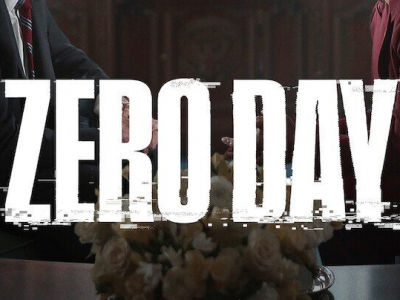Co-authored by Venkatesh S, Head – Risk & Internal Control, Siemens Limited and Hersh Shah, CEO, IRM India Affiliate and India’s Youngest Enterprise Risk Expert
Running a company is much like running the human body. There are countless moving parts, each with its own set of challenges and vulnerabilities. In this ecosystem, the Chief Risk Officer (CRO) is the doctor—responsible for diagnosing, treating, and maintaining the health of the organization. The CRO isn’t just a firefighter, called in when something goes wrong, but a key player who ensures the organization doesn’t fall prey to unseen risks. Much like how a good doctor helps prevent disease, the CRO guides a company in maintaining its health and resilience.
Let’s explore how the role of a CRO mirrors that of a doctor and why every company needs one to stay fit and functional.
Keep Emotions Out of It: Objectivity Is Key
Just as a doctor must remain calm and objective when diagnosing a patient, a CRO needs to approach risk management with a clear head. Emotional decision-making can lead to overreactions or, conversely, ignoring early warning signs. Imagine a doctor getting too attached to a patient’s symptoms without thinking through the root cause. The same goes for a CRO, who must ensure that emotions don’t cloud judgment in risk assessment.
In high-stress situations, like market downturns or sudden shifts in the business environment, fear and anxiety can lead to rash decisions. The CRO must focus on hard data, trends, and probabilities—ensuring that the company reacts based on sound risk analysis rather than emotional impulses.
Don’t Invent Diseases: Avoid Over-Diagnosing Risks
Imagine a doctor who sees a mild fever and jumps to conclude it’s a rare, terminal illness. Similarly, a CRO must resist the temptation to inflate every risk into a catastrophe. Over-diagnosing can lead to unnecessary stress within the company and divert attention from real, more pressing issues.
For a CRO, not every fluctuation in the market or every minor internal issue signals an impending disaster. Risk management is about balance—understanding which risks are worth paying attention to and which are just noise. The ability to differentiate between real threats and minor concerns is what sets a great CRO apart from an average one.
The key is to focus on the big picture. Just as a good doctor wouldn’t prescribe surgery for every ache and pain, a CRO shouldn’t recommend drastic measures for every fluctuation. This overreaction can drain resources and lead to “risk fatigue,” where employees and stakeholders stop taking risk management seriously.
Don’t Try to Medicate Everything: Some Risks Heal Themselves
Sometimes, the best treatment is none at all. Just as certain medical conditions resolve on their own with time, some risks in a company’s ecosystem don’t require intervention. An overly proactive approach can be just as harmful as ignoring risks altogether.
A great CRO knows when to act and, importantly, when not to act. For instance, a temporary dip in sales might not require a complete overhaul of strategy. Instead, allowing the market to correct itself or giving a new business initiative time to mature can sometimes be the best course of action.
This also ties into resource management. Just as doctors wouldn’t prescribe antibiotics for every sniffle (due to the risk of creating resistant bacteria), a CRO shouldn’t mobilize the company’s resources for every minor issue. Prioritization and restraint are critical in ensuring that the company doesn’t wear itself thin reacting to every potential risk.
Be Clear on What Should Not Be Done: Risking the Life of the Company
In medicine, certain actions are known to worsen a patient’s condition or even lead to fatal consequences. Similarly, some decisions, if made by a company, can risk its very survival. A CRO plays a crucial role in clearly communicating what actions should not be taken, particularly in high-stakes situations.
For instance, a doctor would warn a patient with heart disease to avoid unhealthy foods and sedentary lifestyles. Similarly, a CRO must advise against risky investments, unsustainable business practices, or ignoring compliance regulations, which could jeopardize the company’s future.
Sometimes, the CRO’s job is to say, “No.” This can be tough, especially when the rest of the executive team is eager to pursue an exciting new venture. But just like how a doctor must sometimes give patients tough advice, a CRO’s responsibility is to ensure that enthusiasm doesn’t lead to reckless behavior that could compromise the company’s health.
Provide Early Warning Signs: Detecting Risk Before It’s Too Late
Doctors routinely monitor key indicators—blood pressure, cholesterol, sugar levels—to spot signs of trouble before they manifest into serious illnesses. Similarly, a CRO should set up a system of early warning signs to identify risks before they become critical.
This can include everything from tracking financial metrics to monitoring changes in the regulatory landscape or shifts in customer behavior. The ability to detect subtle changes and act on them early is what helps keep the company ahead of potential crises.
A proactive CRO will establish processes to regularly assess risk indicators across the organization. Much like a health checkup, these assessments can identify risks while there is still time to address them, preventing them from becoming unmanageable problems down the line.
Regular Checkups Are Non-Negotiable
Speaking of health checkups, just as regular medical exams are critical for maintaining physical health, regular risk assessments are vital for a company’s well-being. Risk management isn’t a one-time activity but an ongoing process.
The business environment is always evolving. What seemed like a low-risk situation last quarter might have evolved into a significant threat today. By conducting regular reviews of the company’s risk landscape, the CRO ensures that no risk goes unnoticed. These checkups allow the company to adjust its strategies, taking new risks into account while ensuring that old ones are still managed effectively.
Moreover, regular checkups help maintain a culture of risk awareness. Just as individuals become more health-conscious when they go for regular medical exams, employees and leadership will become more risk-conscious when the CRO conducts routine risk assessments.
Trust the Experts: Listen to the CRO’s Advice
Doctors spend years training to understand the human body and its complexities, and patients trust their advice because of their expertise. The same should go for the CRO. Companies must trust their CRO’s guidance when it comes to risk management, especially when the stakes are high.
The role of a CRO isn’t just to identify risks but also to provide sound advice on how to handle them. Sometimes this advice may seem counterintuitive or overly cautious, but it is based on a deep understanding of the company’s risk landscape. Just as patients shouldn’t ignore their doctor’s prescriptions, companies should take their CRO’s recommendations seriously.
Tailored Treatment Plans: No One-Size-Fits-All Approach
Every company is unique, just as every patient is different. A good doctor creates personalized treatment plans, and a CRO must tailor risk management strategies to fit the specific needs of the organization. There is no one-size-fits-all approach to risk management.
What works for one company may not work for another. For instance, a startup might need to focus more on market risks, while a large corporation might be more concerned with compliance or cyber risks. The CRO must understand the unique risk profile of the organization and create a bespoke strategy to manage it.
This personalized approach ensures that the company isn’t wasting resources on irrelevant risks or overlooking critical threats.
The Bottom Line: Prevention is Better Than Cure
At the end of the day, the CRO’s role, much like a doctor’s, is about prevention. The goal isn’t just to treat risks when they arise but to prevent them from happening in the first place. Preventive medicine saves lives, and preventive risk management saves companies.
By setting up robust risk frameworks, monitoring early warning signs, and conducting regular assessments, a CRO ensures that the company remains healthy and resilient. And just as a healthy body can recover more quickly from illness, a well-managed company can bounce back from setbacks with greater ease.
So, just as we trust doctors to keep our bodies in check, companies should rely on their Chief Risk Officers to maintain their organizational health. A company without a CRO is like a patient ignoring their doctor’s advice—it’s only a matter of time before trouble arises. But with a skilled CRO at the helm, the company can navigate risks smoothly, ensuring long-term success and resilience.














